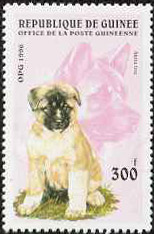
Study of dog and cat owners' perceptions of medical treatment for cancer
Dutch study of owners' views of their cat and dogs' anti-cancer chemotherapy treatments
source: L.B. Bronden et al
Veterinary Record vol 152 no 3, January 18 2003
starts p77, 4 pages long
Cats and dogs may now be seen as part of the family, with their owners wanting the best treatments for their pets if they fall ill. Anti-cancer treatments tend to involve surgery, radiotherapy or chemotherapy. This study examines how owners of cats and dogs undergoing chemotherapy at a centre in Utrecht, Netherlands, perceived the treatment. There were 10 cat owners who answered the questionnaire, and 59 dog owners, giving a total of 69.
Owners most commonly expected that chemotherapy would allow their pets to live longer, while 26.1% expected a cure. The expectations of a cure were higher than the outcome warranted, though the owners did accurately judge likely side-effects. Hair loss, diarrhoea and vomiting were the side effects that owners were most likely to expect. Cats tended to have different side effects from dogs. This may be because cats were not given doxorubicin, which was what caused most of the problems for dogs. Cats may also be less sensitive to anticancer agents, or may metabolise them differently.
Pets tend to have fewer and less intense side effects than humans taking anti-cancer drugs. This may be because pets tend to be given lower doses, and humans are given more aggressive therapies, since vets often aim for palliation when they treat pets. Pets also do not face stress and worry associated with knowing that one has cancer. Owners of 15 of the pets did not notice any side effects, and the effects suffered by the other pets were mostly not severe, and only occasional. Diarrhoea and vomiting were the effects that dog owners most commonly reported, and drugs can be used to treat and help prevent these effects. Weakness and weight loss were also noted, and probably linked to diarrhoea and vomiting. Cat owners saw weight loss as the main problem.
Most of the owners saw the chemotherapy as beneficial, and this is probably linked to the high proportion of pets suffering from malignant lymphoma, a type of cancer that responds well to chemotherapy.
Family members tended to see the treatment favourably, and took part in the decisions in around half the cases. Friends and neighbours were more likely to be positive about the treatment than negative, but were not a positive as families, perhaps because families had greater knowledge of the treatment. Most of the pets were still alive when the survey was carried out. The cats had the longest survival times in terms of the mean average, while pets suffering from cancers other than lymphoma survived for the shortest period. Owners generally saw the treatment as worthwhile, even if their pets had died, and they were also satisfied with the help they had received from their vets and from oncologists. The strongly positive responses of these owners suggest that this area of treatment is rewarding and useful.
DO,HD


